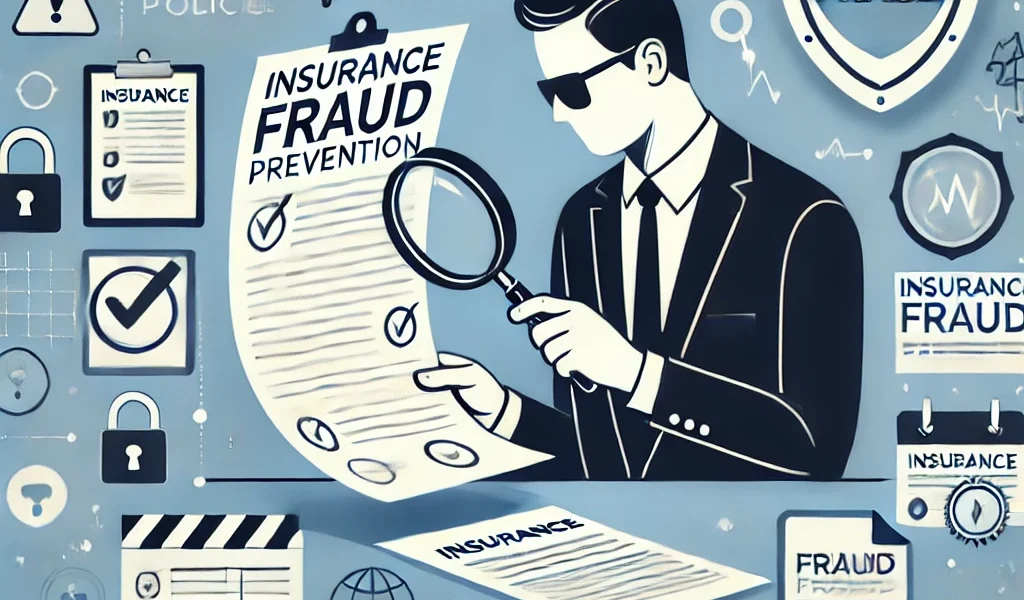Insurance is designed to provide financial security in times of crisis, but unfortunately, fraudsters exploit this system for illegal gains. Insurance fraud costs companies and consumers billions of dollars annually, leading to higher premiums and stricter claim policies. This guide will help you understand how to detect and avoid insurance claim scams while ensuring your legitimate claims are processed smoothly.
1. Understanding Insurance Fraud
Insurance fraud occurs when someone deliberately deceives an insurance company for financial gain. Fraudulent claims can be committed by policyholders, third parties, or even insurance professionals.
Types of Insurance Fraud
- False Claims: Exaggerating damages or fabricating incidents to receive a payout.
- Staged Accidents: Intentionally causing an accident to collect insurance money.
- Identity Theft: Using someone else’s insurance information to file a claim.
- Fake Injuries: Claiming compensation for non-existent or self-inflicted injuries.
- Agent Fraud: An insurance agent collecting premiums but failing to issue policies.
Understanding these types of fraud will help you stay vigilant and protect yourself.
2. How to Spot Insurance Fraud
Being aware of red flags can help you identify fraudulent activities before they affect you.
Red Flags of Insurance Fraud:
- Pressure to File Quickly: Fraudsters often rush victims into filing claims without proper verification.
- Inconsistent Details: If the details of the accident or incident keep changing, it may indicate fraud.
- No Police Report: Legitimate claims involving accidents or thefts usually have a police report.
- Unusual Injuries: Claims for exaggerated injuries that don’t match the incident.
- Multiple Claims in a Short Period: Frequent claims by the same individual can be a warning sign.
- Unlicensed or Suspicious Contractors: Fraudulent contractors may inflate repair costs or perform unnecessary work.
- Ghost Policies: If an insurance agent refuses to provide policy documents, they may be involved in fraud.
Being alert and asking the right questions can help you detect scams early.
3. Steps to Prevent Insurance Fraud
Taking proactive steps can protect you from becoming a victim of insurance fraud.
Preventative Measures:
- Verify Information: Cross-check all details before filing a claim.
- Report Accidents Promptly: Always notify your insurance company as soon as an incident occurs.
- Work with Licensed Professionals: Use verified insurance agents and repair contractors.
- Keep Personal Information Secure: Protect your policy details and avoid sharing them with unknown parties.
- Check Your Policy Regularly: Ensure your policy covers what is promised and that you receive valid documents.
- Watch for Unusual Billing: Review medical and repair bills for unnecessary charges.
By taking these precautions, you can avoid being manipulated by fraudsters.
4. What to Do If You Suspect Insurance Fraud
If you suspect fraudulent activity, follow these steps:
Steps to Take:
- Gather Evidence: Collect documents, photos, and witness statements.
- Contact Your Insurance Company: Report any suspicious behavior immediately.
- File a Police Report: If necessary, involve law enforcement.
- Notify Regulatory Authorities: Report fraud to local insurance fraud prevention agencies.
- Avoid Direct Confrontation: Let professionals handle the investigation.
Taking action early can help prevent fraud from escalating.
5. How Insurance Companies Detect and Handle Fraud
Insurance providers have advanced fraud detection systems to minimize fraudulent claims.
Methods Used by Insurers:
- AI and Data Analytics: Detecting unusual claim patterns.
- Surveillance Investigations: Checking for inconsistencies in reported injuries or damages.
- Collaboration with Law Enforcement: Working with authorities to uncover fraud.
- Policyholder Interviews: Verifying information provided by claimants.
Fraudulent claims not only impact insurers but also result in higher premiums for all policyholders.
6. Frequently Asked Questions (FAQs)
Q1: What happens if I accidentally submit incorrect claim details?
If you realize you made an honest mistake, inform your insurer immediately to correct it. Accidental errors are different from intentional fraud.
Q2: How do I verify if an insurance agent is legitimate?
Check with your state’s insurance regulatory body or verify their credentials on the official insurance company website.
Q3: Can I get penalized for reporting suspected fraud?
No. Reporting suspected fraud in good faith protects you and others from financial losses.
Q4: How can I recover from being a victim of insurance fraud?
Report the incident to your insurer and local authorities, and take steps to protect your personal information from further misuse.
Final Thoughts
Being informed about insurance fraud prevention helps you protect your finances, maintain a clean insurance record, and ensure fair premium rates. By staying vigilant and following the best practices outlined in this guide, you can confidently navigate the claims process while avoiding scams.




